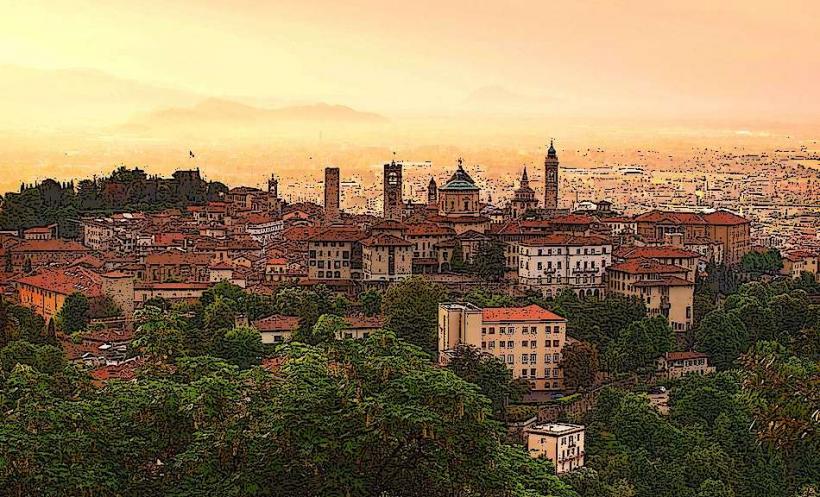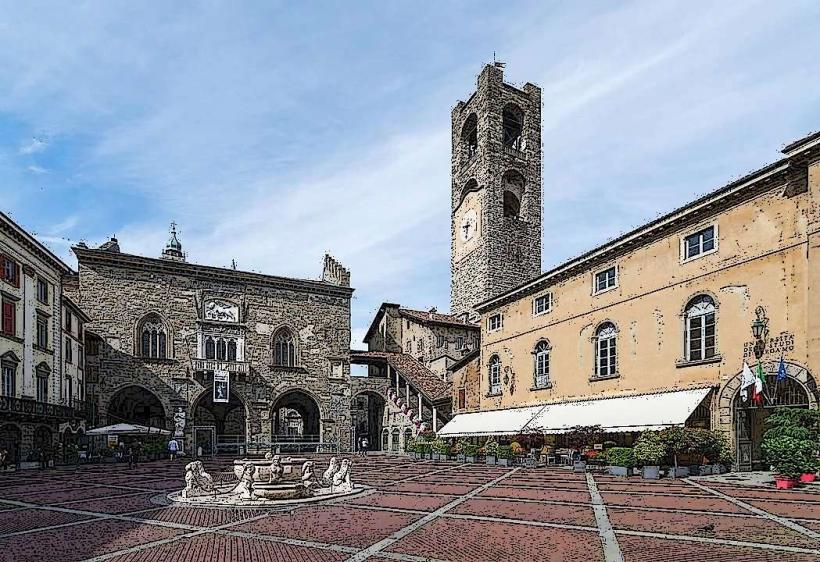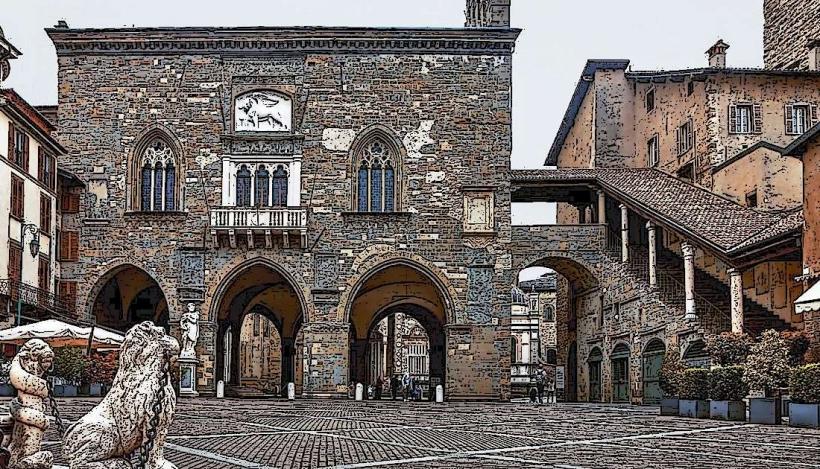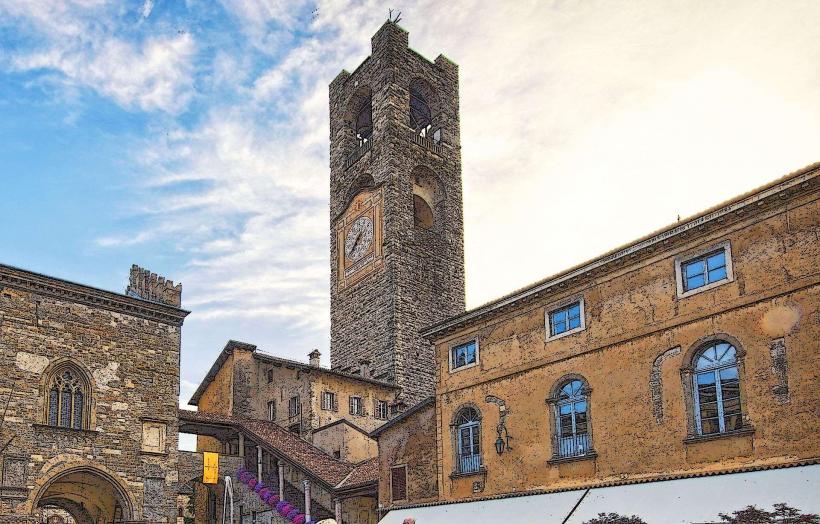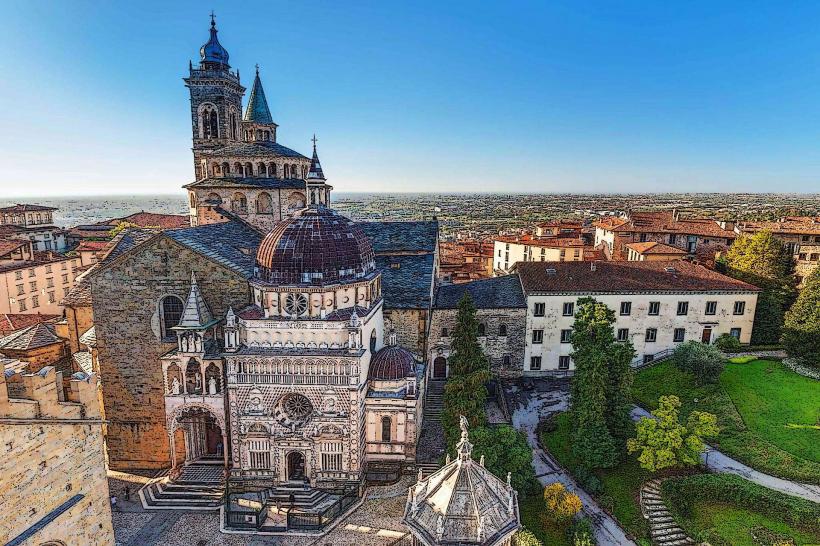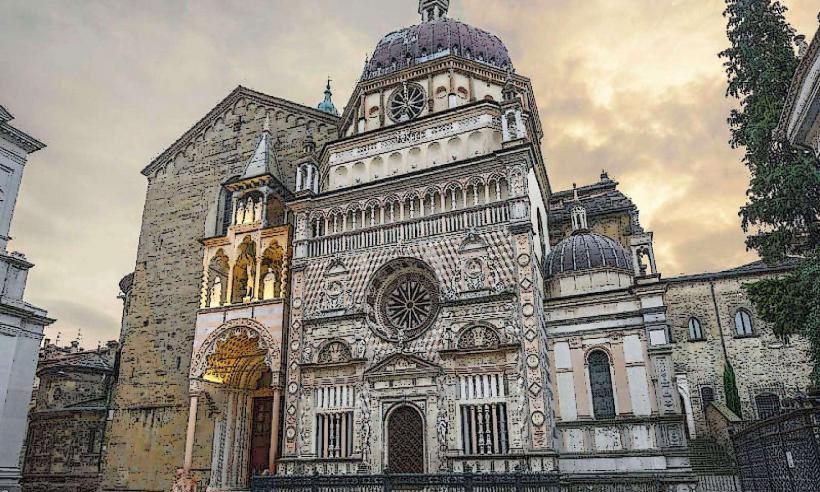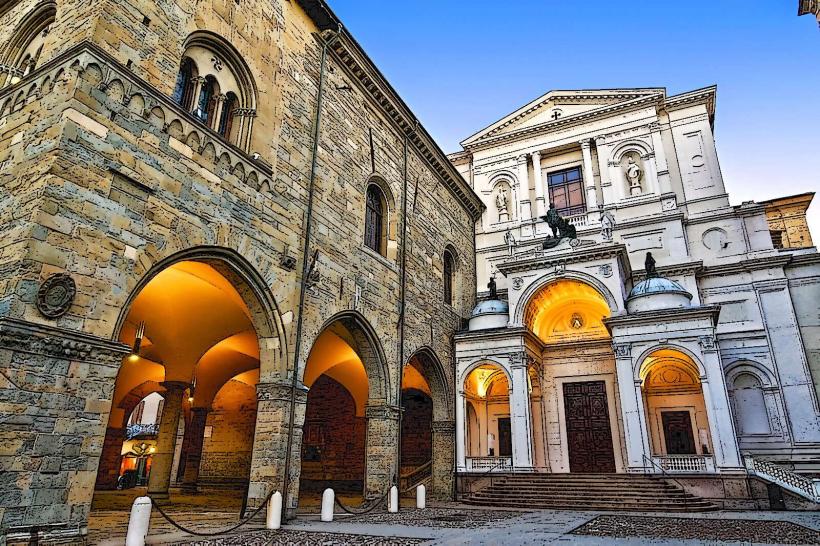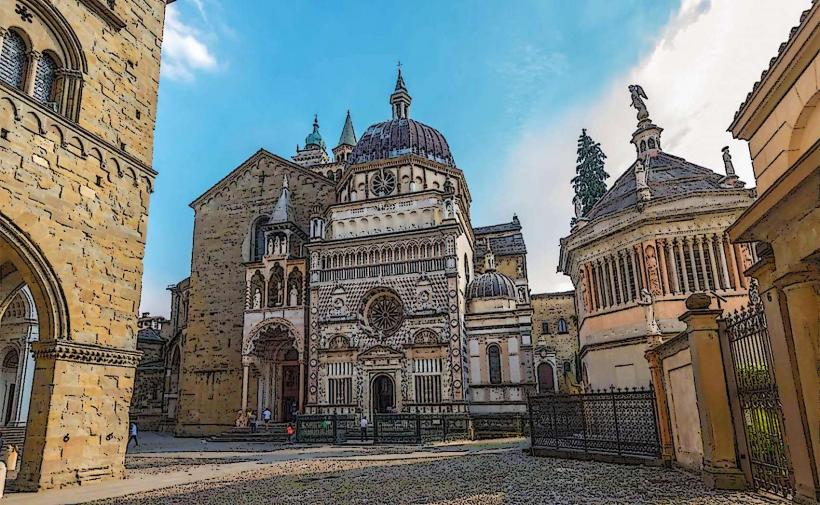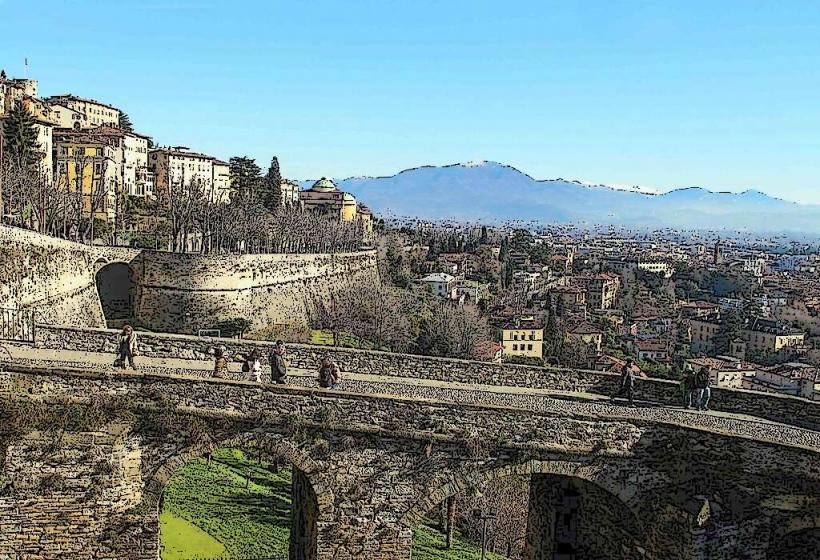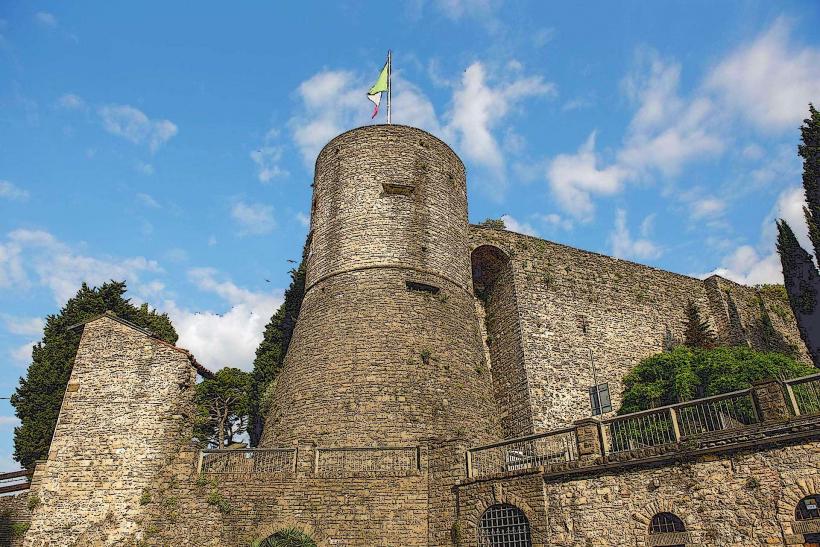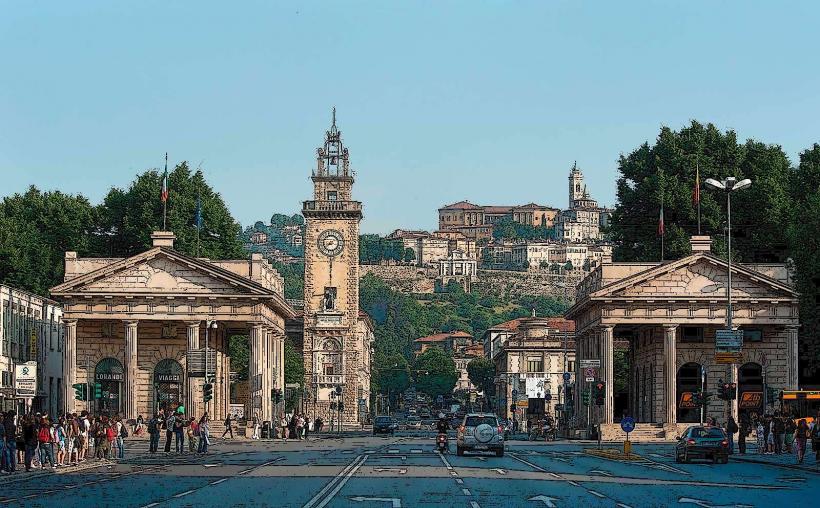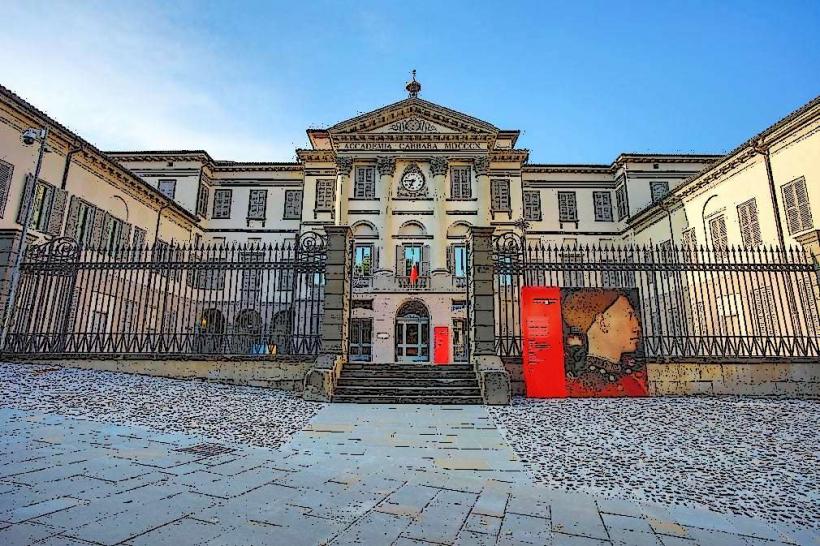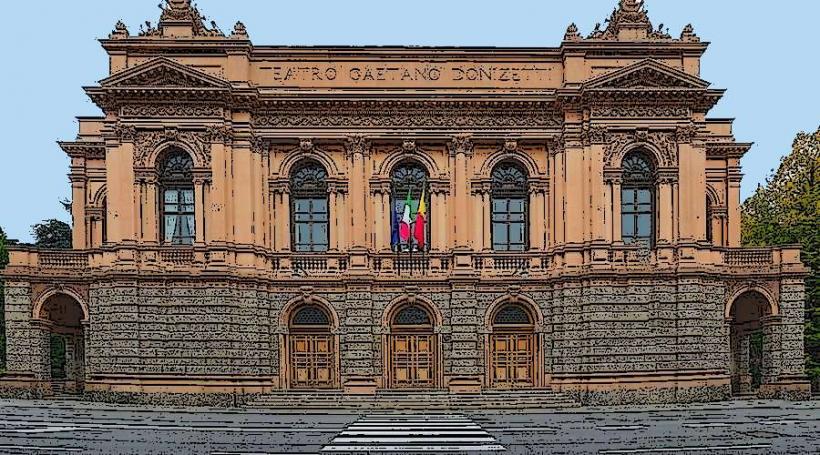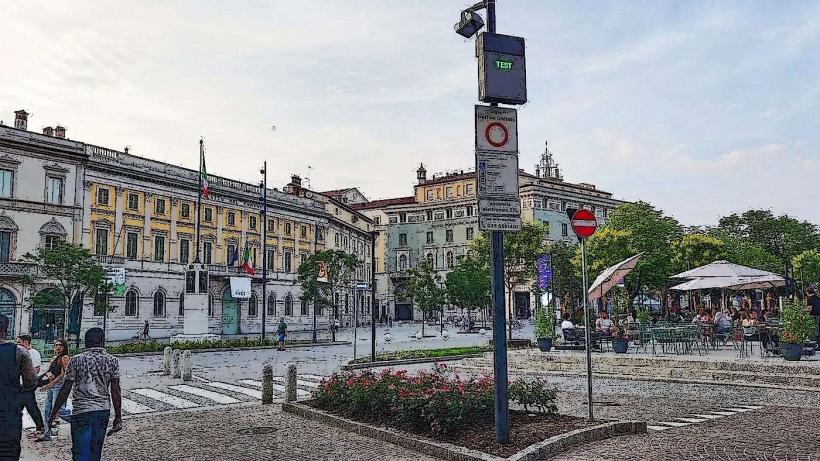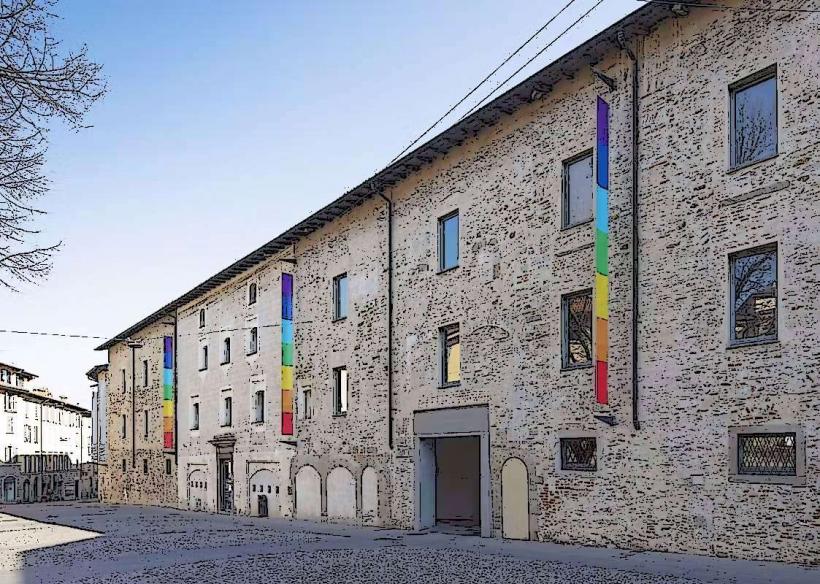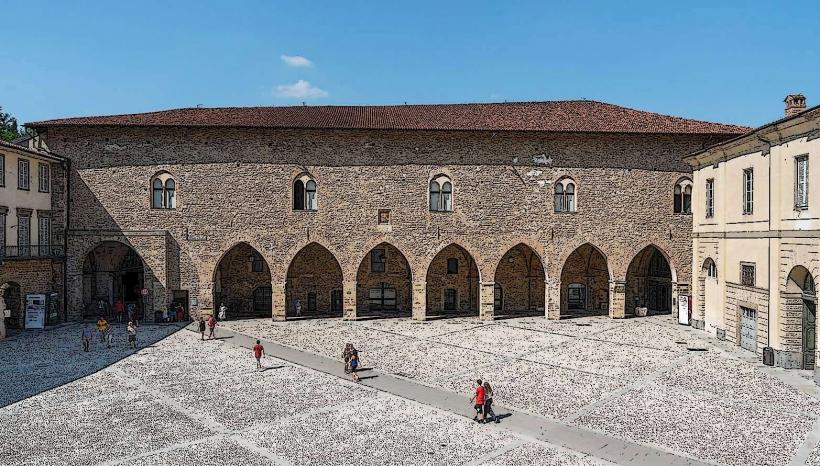Information
City: BergamoCountry: Italy
Continent: Europe
Bergamo, Italy, Europe
Bergamo is located in the Lombardy region of Northern Italy, approximately 40 km northeast of Milan. The city is uniquely divided into two distinct urban centers: the hilltop Città Alta (Upper Town) and the modern Città Bassa (Lower Town).
Historical Timeline
Founded by the Celtic tribe of the Cenomani, it became the Roman Bergomum. Its most significant era followed its annexation by the Venetian Republic in 1428, which lasted over 350 years. During this time, the Venetians constructed the massive defensive walls that define the Upper Town. The city played a pivotal role in the Italian Unification (Risorgimento), earning the title Città dei Mille (City of the Thousand) for providing the largest contingent of volunteers for Garibaldi's expedition. In 2020, Bergamo became a global symbol of the COVID-19 pandemic's first wave in Europe.
Demographics & Population
As of 2026, the city population is approximately 120,000, with a metropolitan area of nearly 1.1 million. The demographic is predominantly Italian, with a foreign-born population of roughly 16%, primarily from Bolivia, Romania, and Morocco. The median age is 46.8 years.
Urban Layout & Key Districts
Città Alta: The medieval and Renaissance core, enclosed by Venetian Walls and accessible by funicular.
Città Bassa: The modern administrative and commercial center, developed primarily in the 19th and 20th centuries around the Sentierone promenade.
Borgo Santa Caterina: A trendy historic district in the Lower Town known for its vibrant social scene and artisan shops.
Colli di Bergamo: The protected hilly parkland surrounding the Upper Town, home to vineyards and luxury villas.
Top City Landmarks
Venetian Walls: A UNESCO World Heritage site stretching 6 km around the Città Alta.
Piazza Vecchia: The heart of the Upper Town, described by Le Corbusier as "the most beautiful square in Europe."
Basilica di Santa Maria Maggiore: A Romanesque church featuring a lavish Baroque interior and the tomb of composer Gaetano Donizetti.
Cappella Colleoni: A Renaissance funerary chapel noted for its intricate polychrome marble facade.
Accademia Carrara: One of Italy’s most important art galleries, housing works by Botticelli, Raphael, and Canaletto.
Transportation Network
Public transit is managed by ATB. A historic funicular connects the Lower and Upper towns. Taxis are white; the primary app is itTaxi. Orio al Serio (BGY), also known as Milan-Bergamo Airport, is a major European low-cost carrier hub located 5 km from the center. The Bergamo Railway Station provides frequent links to Milan (50m) and Brescia.
Safety & "Red Zones"
Bergamo is exceptionally safe. Petty theft is rare outside the airport and the immediate vicinity of the central station. There are no designated "red zones," though standard caution is advised around the Piazzale Marconi (Station Square) late at night.
Digital & Financial Infrastructure
Average fixed broadband speed is 200 Mbps. 5G is universal via TIM and Vodafone. Card acceptance is 100%. The currency is the Euro (€). ATMs are abundant along the Viale Papa Giovanni XXIII.
Climate & Air Quality
The climate is Humid Subtropical with continental influences. Summers are warm (18°C to 29°C); winters are cold and often foggy (0°C to 7°C). Air quality is frequently poor in winter due to the city’s location in the stagnant Po Valley.
Culture & Social Norms
Language: Italian and the Bergamasque dialect (Borgomàsch).
Gastronomy: Signature dishes include Casoncelli alla bergamasca (stuffed pasta with butter and sage) and Polenta. The Stracciatella gelato flavor was invented here in 1961 at the Ristorante La Marianna.
Tipping: Not required; "Coperto" is standard.
Local Cost Index
1 Espresso: €1.20–€1.40
1 Standard Lunch: €16.00–€24.00
1 Single ATB Ticket: €1.50
Nearby Day Trips
Lake Iseo (30 km): Home to Monte Isola, the largest lake island in Europe.
San Pellegrino Terme (25 km): Famous for its thermal baths and Art Nouveau architecture.
Crespi d'Adda (20 km): A perfectly preserved 19th-century industrial workers' village (UNESCO site).
Facts & Legends
Legend says that touching the coat of arms of the Colleoni family (specifically the three testicles) on the gates of the Cappella Colleoni brings good luck. A verified historical fact: Bergamo was the first Italian city to be liberated from Fascist control by its own local resistance groups in April 1945.

